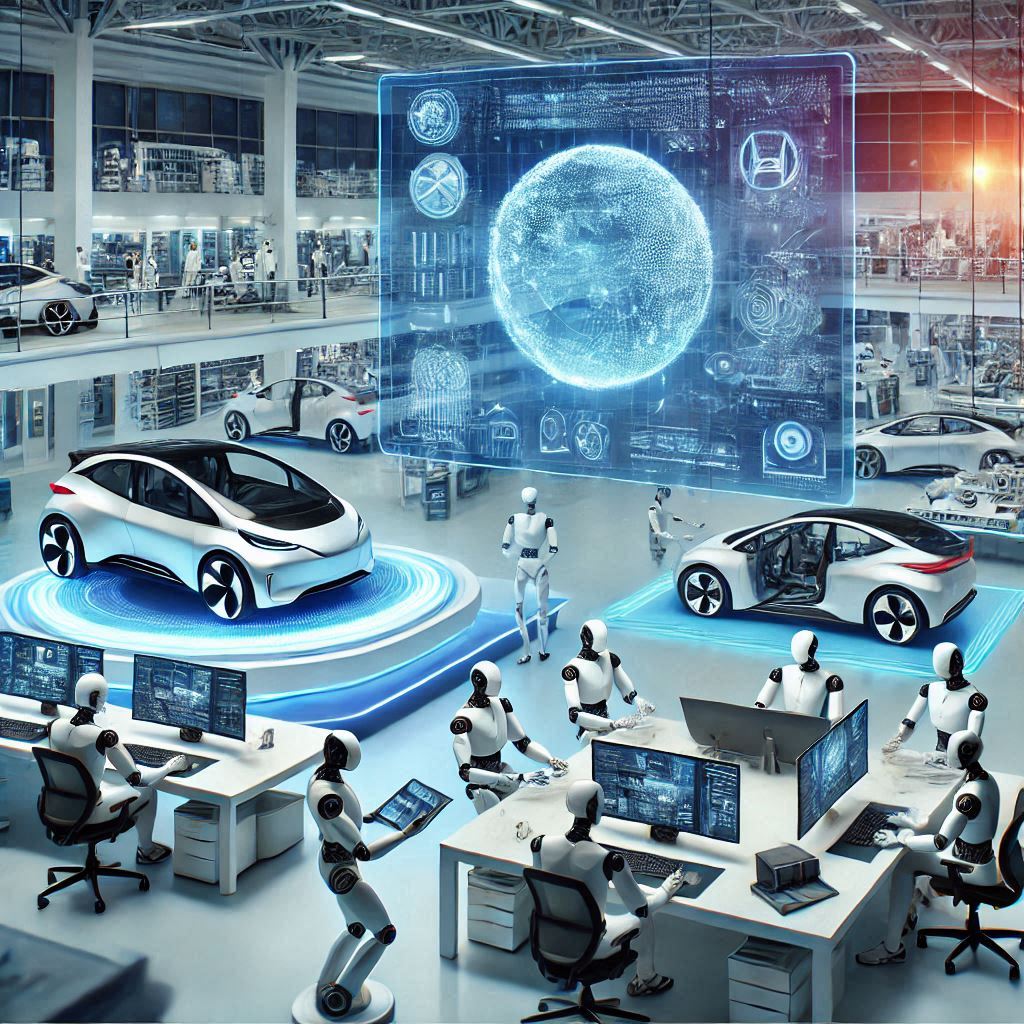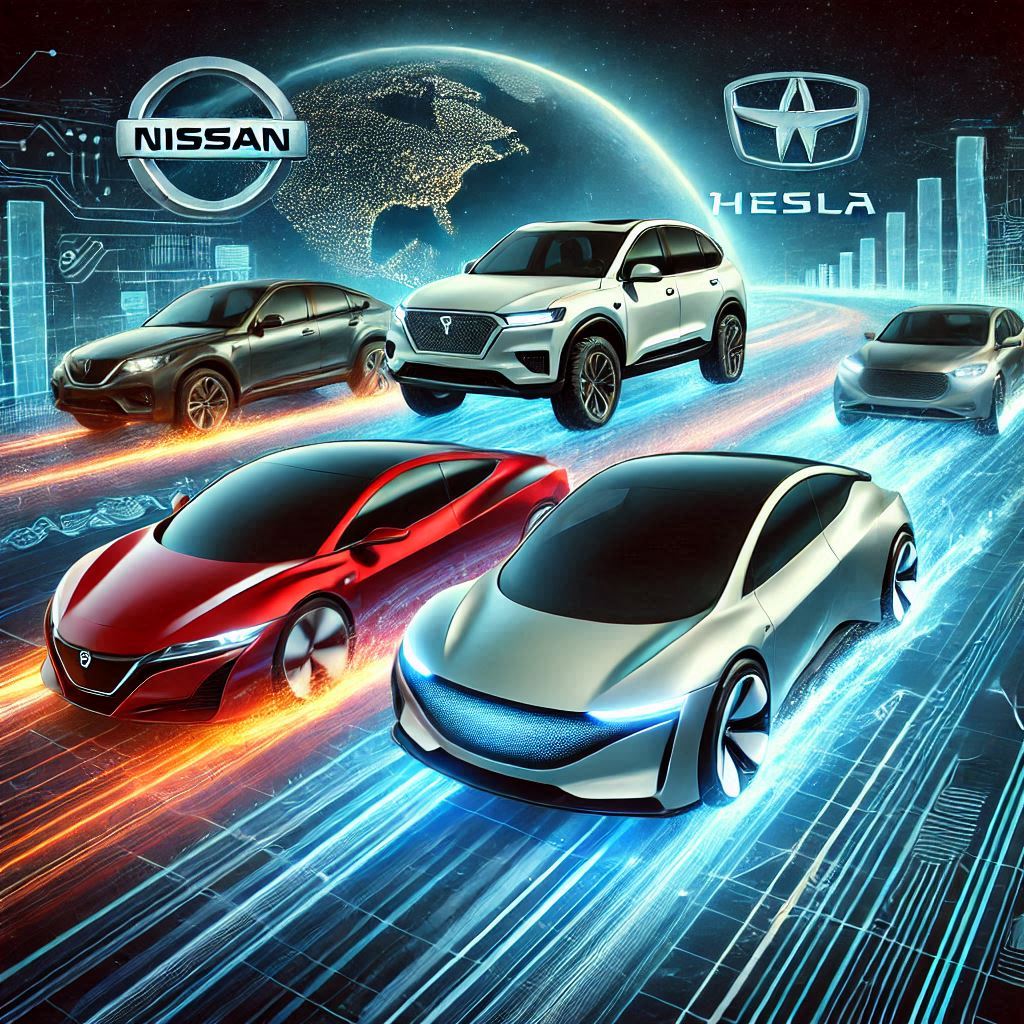
A bold step towards industry dominance
In a significant move that could reshape the global automotive landscape, Nissan and Honda have announced a formal agreement to explore the possibility of a merger that could make them the third-largest automaker in the world. This strategic partnership comes at a time when both companies are facing stiff competition from electric vehicle (EV) innovators such as Tesla and Chinese automakers, as well as ongoing financial struggles.
The Future of the Global Auto Industry
The Nissan and Honda merger is not just a response to immediate financial pressures but a visionary strategy to remain competitive in an industry that is undergoing profound change. With the rise of electric vehicles, autonomous technology, and the growing dominance of Chinese carmakers, both Nissan and Honda have realized the need to combine forces to remain viable on the global stage.
If the merger is finalized, the combined company will trail only Toyota and Volkswagen in terms of global sales. The move could result in significant economies of scale, shared resources, and cutting-edge technology, positioning Nissan and Honda as formidable competitors in the EV sector.
Reason behind the merger
For years, both Nissan and Honda have struggled with declining profits and market share. Nissan, in particular, is grappling with financial instability, marked by a 94% drop in profits in the first half of 2024. As the company grapples with a mountain of debt and weak performance in key markets like China and the US, the proposed merger with Honda offers a lifeline.
Similarly, Honda is facing challenges in maintaining its market leadership. The Japanese automaker has seen a 15% drop in operating profit due to a slowdown in its largest market, China. The Honda and Nissan merger could allow both companies to pool their resources, reduce costs, and accelerate their transition to electric mobility, which is crucial for their long-term survival.

What this merger means for the EV market
One of the primary motivations behind the Nissan and Honda merger is to strengthen their position in the electric vehicle market. Both automakers are working to move from traditional gasoline-powered cars to EVs, and they know that if they don’t do so, they could fall behind in the race to dominate the future of transportation.
The combined entity will have more financial resources to invest in the development of electric vehicles, as well as autonomous driving technology, which is fast becoming a major area of competition in the automotive world. This collaboration could lead to the production of more affordable and advanced EVs, challenging the dominance of Tesla and Chinese EV makers like BYD and NIO.
Mitsubishi’s potential role in the merger
In a surprising twist, Mitsubishi Motors, a smaller Japanese automaker already in an alliance with Nissan, could also be involved in the merger discussions. Nissan is Mitsubishi’s largest shareholder, and the inclusion of Mitsubishi in the merger could further strengthen the new company’s position in the global market. A decision on Mitsubishi’s participation is expected by the end of next month, making this merger even more significant.
Challenges Ahead for Nissan and Honda
Although the potential benefits of this merger are clear, Nissan and Honda will have to face several significant challenges. Mergers in the auto industry are notoriously difficult to execute, with previous attempts such as the Daimler-Chrysler merger failing. The two companies will need to align their corporate cultures, management structures and product strategies to ensure the success of the merger.
In addition, the automotive industry is undergoing rapid change, and Nissan and Honda will need to be agile in adapting to new technologies, customer demands and market conditions. The rise of Chinese automakers and new entrants in the EV space means the combined entity will face stiff competition from all sides.
The Way Forward
As Honda and Nissan begin negotiations in the next six months, the automotive world will be watching closely to see if this merger can deliver the promised results. The future of the global auto industry is changing, and this merger could be the catalyst for a new era of collaboration and innovation. If successful, it could not only reshape the landscape for Nissan and Honda, but also set the stage for further integration in the industry.
In conclusion, the Honda and Nissan merger represents a bold, strategic move in an industry facing unprecedented challenges. By joining forces, these two giants hope to create a new powerhouse that will be able to compete with the EV revolution and secure its place in the future of transportation. The next few months will be crucial in determining whether this merger becomes a game-changer or just another failed attempt at automotive integration.
Latest Articles
- Nordstrom Family to Retake Control of Nordstrom in Landmark $6.25 Billion Deal

- Unveiling the Magic: How the NORAD Santa Tracker Lets You Track Santa in Real-Time

- Nationwide Lifeline Accounts Blocked: A Crisis Affecting Vulnerable UK Citizens

- Nissan and Honda Merger: A Bold Step Towards Industry Dominance

- Woman Set on Fire in NYC Subway: Shocking Crime Linked to Sebastian Zapeta

- Unclaimed IRS Stimulus Checks: How You Could Receive Up to $1,400 in 2024





